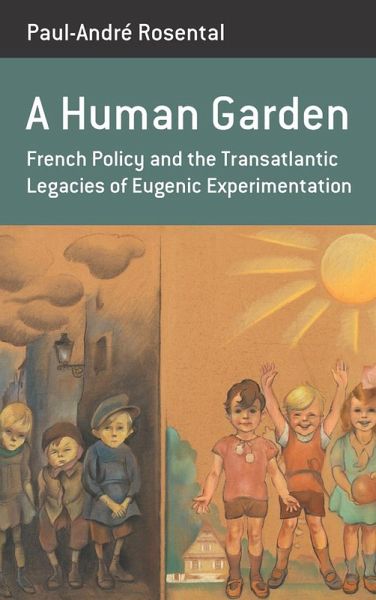
A Human Garden (eBook, ePUB)
French Policy and the Transatlantic Legacies of Eugenic Experimentation

PAYBACK Punkte
9 °P sammeln!
Well into the 1980s, Strasbourg, France, was the site of a curious and little-noted experiment: Ungemach, a garden city dating back to the high days of eugenic experimentation that offered luxury living to couples who were deemed biologically fit and committed to contractual childbearing targets. Supported by public authorities, Ungemach aimed to accelerate human evolution by increasing procreation among eugenically selected parents. In this fascinating history, Paul-André Rosental gives an account of Ungemach's origins and its perplexing longevity. He casts a troubling light on the influenc...
Well into the 1980s, Strasbourg, France, was the site of a curious and little-noted experiment: Ungemach, a garden city dating back to the high days of eugenic experimentation that offered luxury living to couples who were deemed biologically fit and committed to contractual childbearing targets. Supported by public authorities, Ungemach aimed to accelerate human evolution by increasing procreation among eugenically selected parents. In this fascinating history, Paul-André Rosental gives an account of Ungemach's origins and its perplexing longevity. He casts a troubling light on the influence that eugenics continues to exert-even decades after being discredited as a pseudoscience-in realms as diverse as developmental psychology, postwar policymaking, and liberal-democratic ideals of personal fulfilment.
Dieser Download kann aus rechtlichen Gründen nur mit Rechnungsadresse in A, D ausgeliefert werden.













